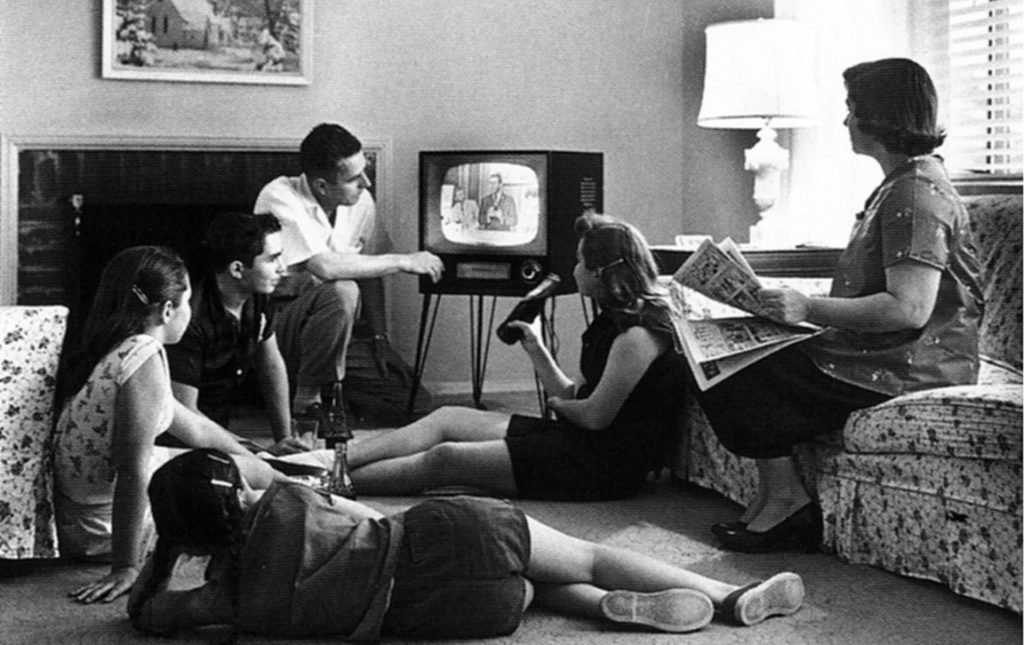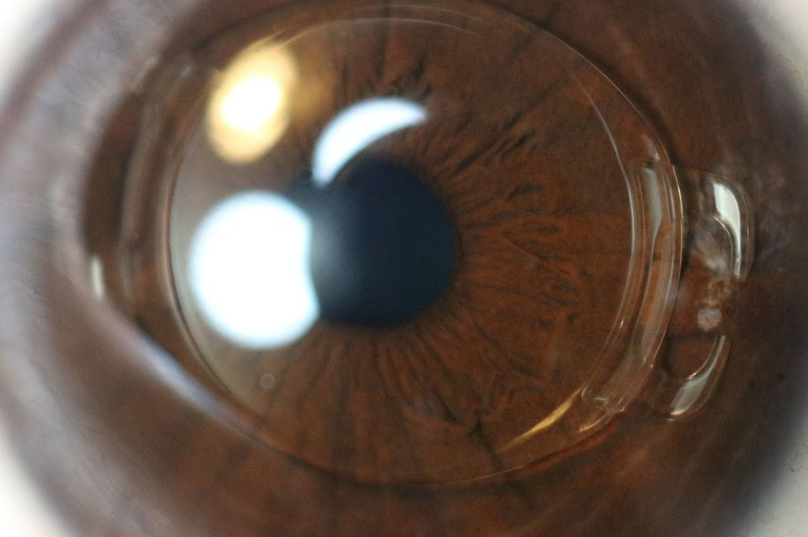by Carol S. Hyman

Last Saturday night I watched two documentaries that reminded me of the virtues of diversion. Humans tell ourselves stories, and even though documentaries are meant to tell true ones, the filmmakers’ agendas inevitably shape the tale. These two documentaries got me thinking about another story, so deeply rooted in our culture that we may not even notice it, and that is that only some of our activities are productive while others we view as indulgences, distractions, or wastes of time.
Watching television may not immediately spring to mind as a productive activity. But because of the nature of human consciousness, if we apply mindfulness in our viewing, we may discover hidden benefits in even such guilty pleasures as binge watching.
One of the first things people notice when they begin training their minds is the constant busyness. Relentless run-on thinking punctuated by intermittent sense perceptions and emotional responses can make it hard to sit still and simply observe our inner activity. But if we stick with it, eventually things settle enough for us to notice one of mind’s most fundamental characteristics: awareness always seeks an object. Meditation takes our inner process as the object of awareness and helps us see how mind is always asking, “What’s next?”
We’ve been doing it all our lives. When I was a kid, I couldn’t wait for summer to start. But funny thing, late August inevitably found me counting the days until school started again. Labor Day’s departure meant I’d be moving on up to the next grade in school, or to a new school altogether. Back then, my productive activities were clearly defined: I was expected to do well in school and handle my chores around the house.
In my free time I read books of all sorts. I was also a fan of a few television shows, which gave me another reason to look forward to September. When evening entertainment was three channels of broadcast television, the fall season meant that fresh episodes of favorite shows would emerge from the hibernation of summer’s ho-hum reruns.
“Educational television” was something we watched in school — history lessons and the like — and as it grew into what we know as PBS, its edifying abilities became obvious. Less obvious, perhaps, are the advantages one can derive from dramas and comedies, or even soap operas and so-called “reality television.”
Tibetans, I was once told, could not see the point of fiction. Why spend your time occupying your mind with something somebody else made up? I’m sure there are many good reasons, but two in particular have made me appreciate fiction, in all its forms, as a great accomplishment. First, stories made up by others help expand our perspective, offering insight into experiences and worlds we would otherwise never glimpse. And second, entering those other lives vicariously allows access to energies we may not even be aware of having, emotional baggage so highly charged that the safest way to approach it is indirectly. Tearjerkers and scary stories let us release sadness and fear we might prefer not to feel, or even know we are holding, helping us purge emotional toxins relatively painlessly; even less dramatic stories can prompt unexpected insight.
Because mindful engagement with entertainment can help open our minds, and because opening our minds brings clarity about how to bring benefit into our own life and the world altogether, the line between productive activities and downtime can get pretty blurry. Sometimes entertainment expands our perspectives and touches our hearts; conversely, sometimes staying busy with so-called productive activities is simply a way to avoid the uncomfortable work of facing our preconceptions, biases, opinions, and attitudes, so we can let go of them.
Life is an ongoing process of toggling between what we have to do and what we want to do. We all have unavoidable tasks, beginning with the care and feeding of our bodies. Attending to our minds, we may notice unproductive habitual mental patterns like stewing over the past or worrying about the future. Even being engaged in educational or constructive intellectual activities, we can get bogged down in details, stuck with the same old views, or caught parroting somebody else’s ideas.
So it’s worthwhile being on the lookout for opportunities to use television (or other media) not as chewing gum for the mind, but to help expand our perspective. Which brings me back to the two documentaries I watched last night. One was on how the Beatles changed the world and the other was on Woodstock and the three days that marked a generation. Being a part of that generation, before I watched the films I thought the grand claims of the titles hyperbolic. What I expected was, at best, a diverting trip down memory lane.
What I got was a reminder of the power the natural goodness of the human heart holds, and how its influences ripple through time, changing our world. In spite of all the causes for concern in society today, the last fifty years have seen our culture improve in ways we could not have imagined possible. Seeing that set me to imagining how our resourcefulness and decency could shape the next fifty. The Beatles, given an opportunity to share a song on the first ever world-wide satellite broadcast, didn’t choose a song from the brilliant album they had released only a month earlier, Sergeant Pepper. Instead, knowing their message would reach 350 million people, they sang, “All you need is love.”
Oh, and maybe a little mind training.





4 thoughts on “On the Virtues of Downtime”
Thanks. I’ll enjoy my tv watching with a little less guilt, and a bit more mindfulness. ??
I really enjoy reading your articles, this one really brought back memories. Our trip to Jacksonville to see the Beatles was one of my best memories.
Thanks for this, Carol. Your title, “On the Virtues of Downtime” drew me in as I’ve just now come off a six month break (aka downtime) from blogging and have been processing all that I have gained from that time. This idea of the brain seeking “what’s next” also resonated. And reminded me that what’s next for me is to sit awhile. Is that ironic or what?
“…stories made up by others help expand our perspective, offering insight into experiences and worlds we would otherwise never glimpse.”
My wife and I were just talking about this, the value of shows,movies, stories, books, and the like. Last night as I was making dinner my son (13) and daughter (6) were watching an episode of the new Netflix series, The Dark Crystal. I heard my daughter say, “Wow, Deet has journeyed so far. If I journeyed that far I would be exhausted.” And it just thrilled me that she was being moved by that character’s experience, reflecting on it, and communicating about it to her brother.
This also reminds me of the time that my wife and son had just finished watching The Last Samurai and he said to her, “This story makes you realize how every person’s life is important and special.